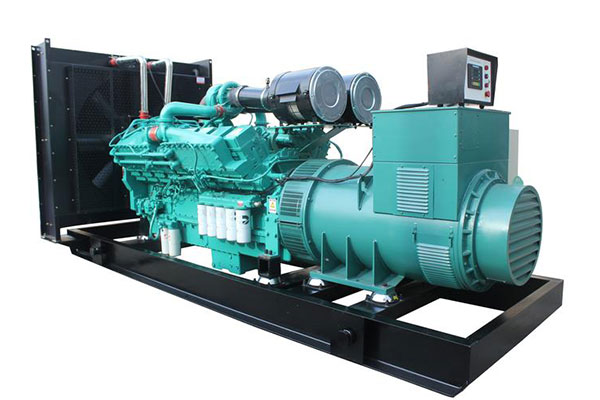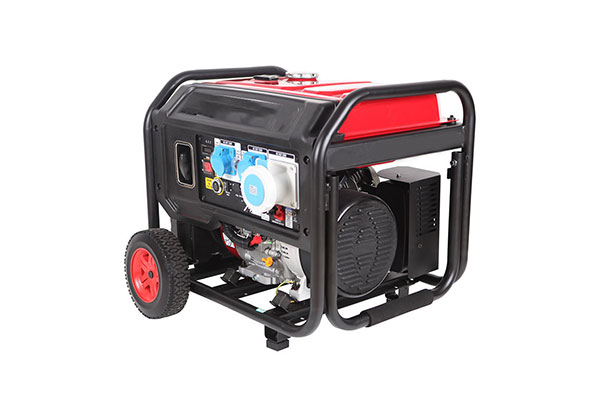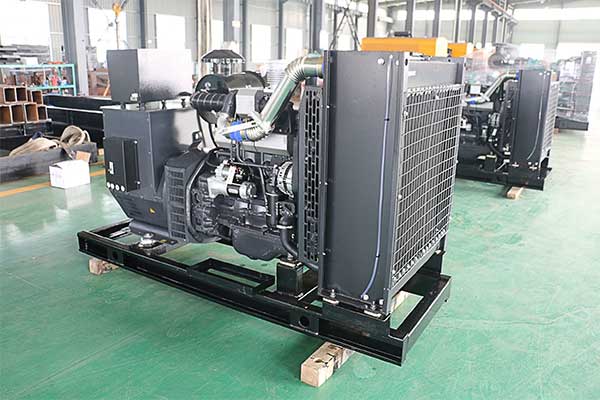Diesel vs Propane Generators: Which is Right for You?
When it comes to choosing a backup power source for your home or business, the two most common options are diesel generators and propane generators. Each type offers unique advantages and drawbacks, making it important to understand their differences before making a decision. In this article, we will explore the key aspects of both diesel and propane generators to help you choose the best one for your specific needs.

What is a Diesel Generator?
A diesel generator is a power source that runs on diesel fuel. Diesel generators are widely used in both residential and commercial settings due to their efficiency, reliability, and long lifespan. They are typically more powerful than propane generators, making them ideal for heavy-duty applications like industrial use and large-scale backup power.
Pros of Diesel Generators:
- Higher Power Output: Diesel generators tend to have higher power capacities, making them better suited for heavy-duty applications that require significant power.
- Fuel Availability: Diesel fuel is widely available and can often be stored for longer periods compared to propane, making it a reliable option for long-term use.
- Longer Lifespan: Diesel engines are known for their durability, with many lasting for tens of thousands of hours when properly maintained.
- Fuel Efficiency: Diesel engines are generally more fuel-efficient than propane engines, meaning you’ll get more energy per gallon of fuel.
Cons of Diesel Generators:
- Higher Emissions: Diesel generators produce higher levels of harmful emissions, which can be a concern for environmental impact.
- Noise Levels: Diesel generators are generally louder than propane generators, which may be disruptive in residential or noise-sensitive areas.
- Maintenance Requirements: Diesel engines often require more maintenance and care compared to propane engines, which can lead to higher maintenance costs over time.

What is a Propane Generator?
A propane generator runs on propane gas, a clean-burning alternative to gasoline and diesel. Propane generators are known for their environmentally friendly emissions and quieter operation, making them a popular choice for residential use and in areas with strict environmental regulations.
Pros of Propane Generators:
- Cleaner Emissions: Propane burns cleaner than diesel and gasoline, emitting fewer pollutants and making it a more environmentally friendly option.
- Quieter Operation: Propane generators tend to be quieter than diesel engines, making them a great choice for residential areas or areas with noise regulations.
- Ease of Storage: Propane can be stored in tanks for long periods without degrading, providing a reliable fuel source during power outages.
- Lower Maintenance: Propane engines generally require less maintenance than diesel engines, resulting in lower long-term maintenance costs.
Cons of Propane Generators:
- Lower Power Output: Propane generators typically have a lower power output than diesel generators, making them less suitable for large-scale or heavy-duty applications.
- Fuel Availability: While propane is widely available, it may not be as accessible in remote areas or during emergencies when fuel supplies are limited.
- Fuel Efficiency: Propane is generally less fuel-efficient than diesel, meaning you may need more fuel to generate the same amount of power.

Key Differences Between Diesel and Propane Generators
| Feature | Diesel Generator | Propane Generator |
|---|---|---|
| Power Output | Higher power capacity, suitable for large-scale use | Lower power output, ideal for smaller applications |
| Fuel Efficiency | More fuel-efficient, longer runtime on a single tank | Less fuel-efficient, shorter runtime on a single tank |
| Emissions | Higher emissions, environmental concerns | Cleaner emissions, more eco-friendly |
| Noise Levels | Louder operation, can be disruptive | Quieter operation, better for residential areas |
| Maintenance | Higher maintenance needs and costs | Lower maintenance requirements |
| Fuel Availability | Widely available, reliable in most locations | Widely available but less accessible in remote areas |
| Cost | Typically more expensive upfront | Typically less expensive upfront |
Which Generator is Right for You?
The choice between a diesel generator and a propane generator depends largely on your power needs, environmental considerations, and budget. Here are some factors to help you decide:
- For Heavy-Duty Applications: If you need a high-power generator for industrial use, construction sites, or large-scale backup power, a diesel generator is the better choice due to its higher power output and efficiency.
- For Residential Use: If you’re looking for a quiet, environmentally friendly generator for your home, a propane generator might be more suitable. It offers lower emissions, quieter operation, and lower maintenance costs.
- For Budget-Conscious Buyers: Diesel generators generally have a higher upfront cost, but they may be more fuel-efficient and last longer, offering a better return on investment for heavy use. Propane generators, on the other hand, are less expensive upfront and have lower maintenance costs.
- For Environmental Concerns: If reducing your environmental footprint is a priority, propane generators are the cleaner option due to their lower emissions.
Conclusion
Both diesel and propane generators offer unique advantages depending on your power requirements and other factors like noise, maintenance, and fuel availability. Diesel generators are powerful and efficient, making them ideal for industrial and heavy-duty applications, while propane generators are quieter, cleaner, and better suited for residential use. By evaluating your specific needs and preferences, you can make an informed decision that ensures reliable backup power when you need it most.

